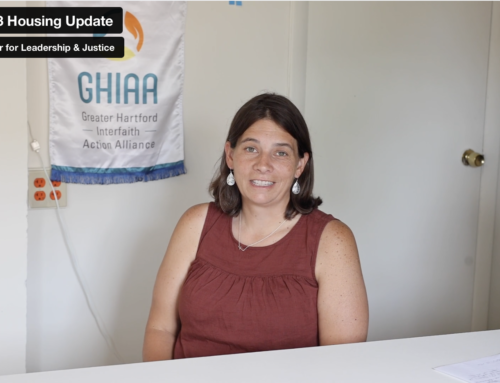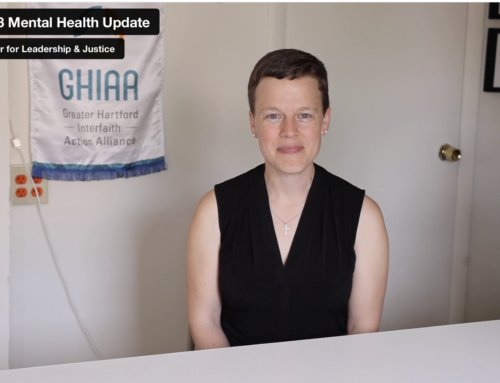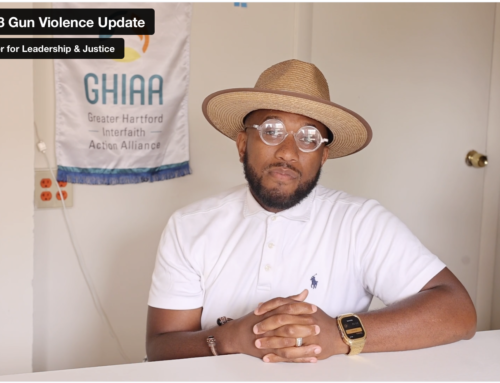Dear Friends of CLJ and GHIAA,
I write to you from the context of the ongoing and devastating COVID-19 pandemic and the continuing idolatrous realities of white supremacy plaguing this nation. The murder of George Floyd has ignited a spark within many of our institutions and congregants that has created a new wave of engagement with the work of GHIAA. This is great. It is also concerning.
A friend recently offered a metaphor that I think provides some wise guidance. Harkening back to the days of college, I’m sure you can recall the student (because it surely was none of us) who ran into class an hour late, having slept through their alarm. The most appropriate behavior is for that student to sit down quietly, and immediately start listening intently to what is being said to try to understand. Then, they put in some hard work after class because they slept through their alarm, for whatever reason.
We have slept through many alarms! Many of us – especially those of us who are white – are rushing into class trying to figure out what we’ve missed, but instead we need to sit down quietly and start listening intently. We are rushing “to do” things and “react” instead of taking this opportunity to create an environment for long term systemic change.
Our lateness requires awareness. Awareness that our colleagues of color are asking for a lot more than the posting of Black Lives Matter signs and showing up at marches. Awareness that while our spirit is renewed and reenergized for fighting for racial justice, our colleagues of color are tired and fighting for their lives.
We at CLJ and GHIAA, under my leadership, are guilty of responding in the current moment with a frenzied response, to do something urgently in wake of George Floyd’s murder and the realities of the racial disparities being experienced through the COVID-19 pandemic. We launched several letter writing campaigns, we engaged in marches and protests, and deliberated whether or not our standard organizing approach is right for this moment. We made mistakes over the last few months, for sure, but what we did, hopefully well, is listen.
Through rounds of virtual individual meetings, clergy caucus gatherings, and internal strategy sessions with your organizers and leaders, we have listened to hard lessons about the need for internal engagement with racism, to be sure that our reactions do not result in a misalignment between our intentions and impact. As we continue to engage in the steady and ongoing work of deconstructing systemic oppression through organizing, we also need to deeply engage with our own internalized racism, as individuals and institutions.
What follows is a summary of where GHIAA stands on various campaigns and where we are headed.
Finally, as you know, GHIAA recently hired two new organizers, Cesar Aleman and Derrick Everett. They were hired just as the pandemic shutdown was happening, significantly slowing the orientation and onboarding process. We have now assigned all GHIAA congregations a primary organizer. Each organizer has been reaching out to clergy for a one-to-one check-in and is then working to meet all core team members. Your primary organizer is your first point of contact for any GHIAA needs, questions, assistance, etc. You can expect contact from your organizer by the end of July.
Moreover, each issue team now has a lead staff member working closely with the chair/co-chairs. They are as follows:
- Education: Cesar Aleman (cesar@cljct.org)
- Housing: Cesar and Derrick Everett (deverett@cljct.org)
- Criminal Justice: Derrick Everett and Rev. Isaac Lawson (ilawson@cljct.org)
- Healthcare: Pat Speer (sheeaun@gmail.com)
- Gun Violence: Pat Speer (sheeaun@gmail.com)
- North End Power Team: Rev. AJ Johnson (ajohnson@cljct.org)
- Clergy Caucus: Cori Mackey (cmackey@cljct.org)
I am the lead organizer and you should feel free to contact me any time for any reason. You can reach me at cmackey@cljct.org or on my cell at 860-810-9736. Thank you for all that you do and please know that we are here to support you.
Peace,
Cori Mackey




